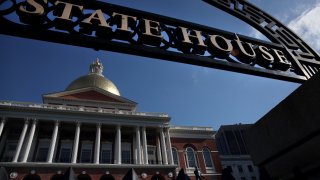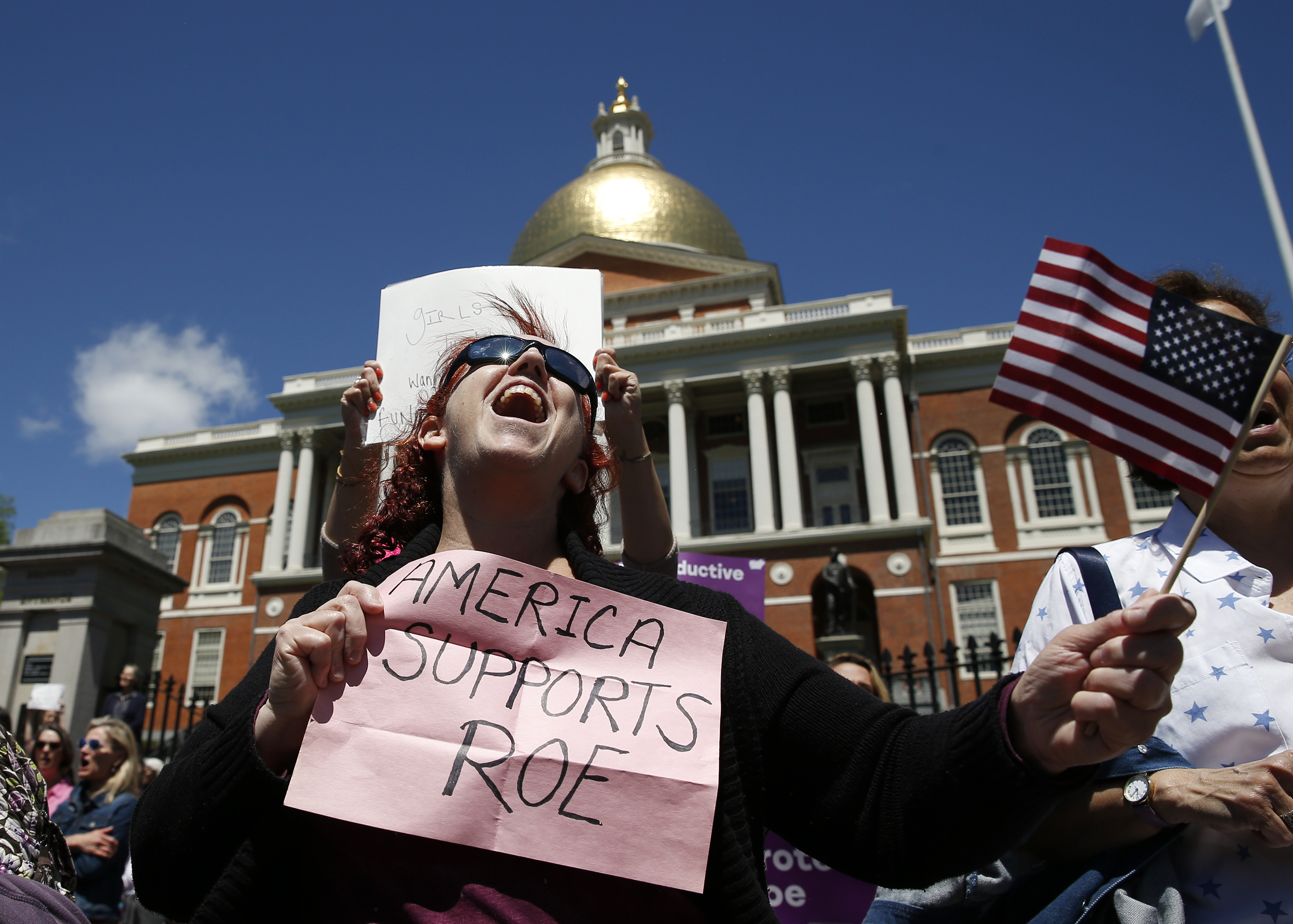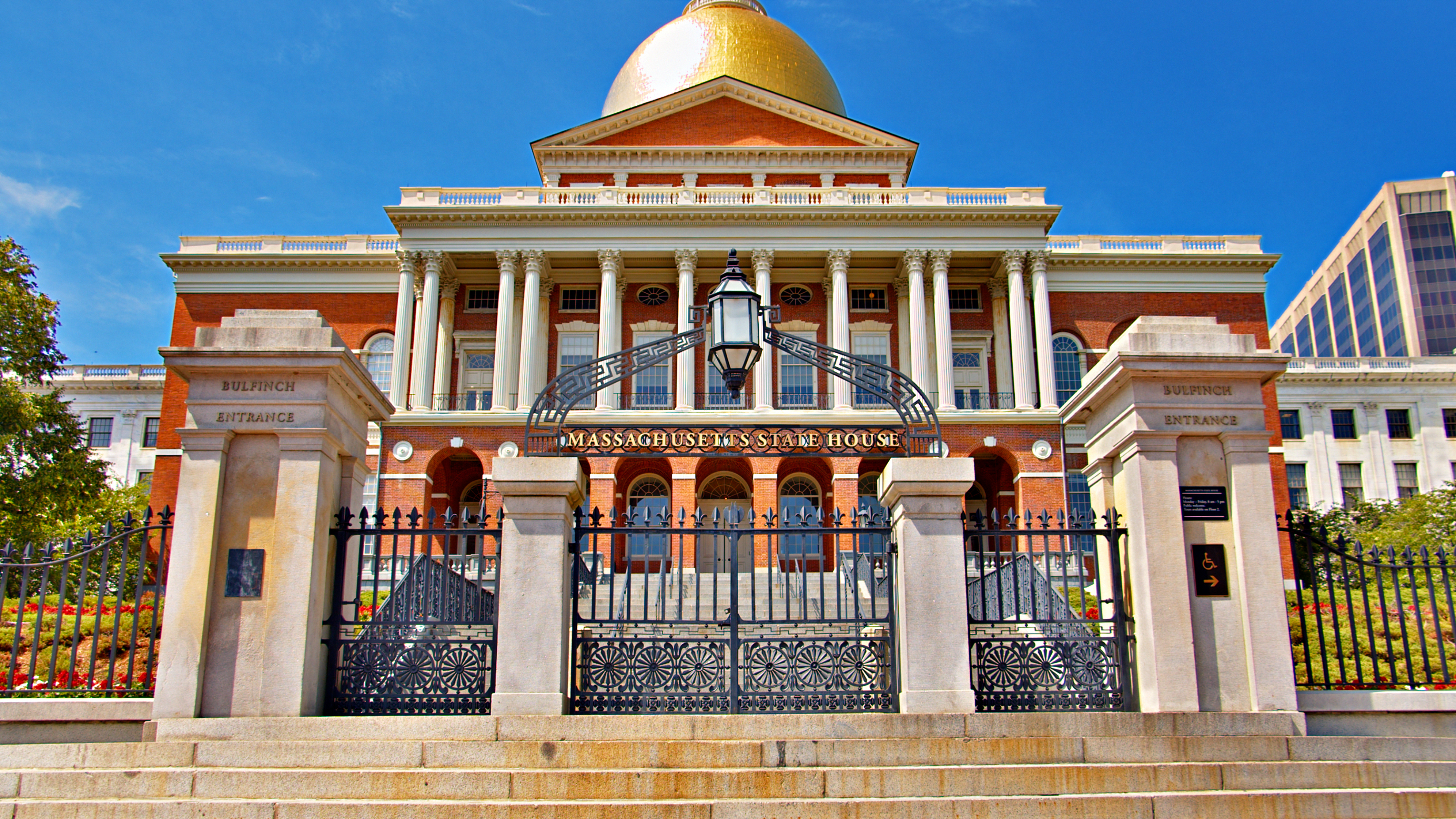
Massachusetts lawmakers approved a sweeping abortion bill Tuesday aimed in part at building a firewall to protect access to the procedure after the U.S. Supreme Court overturned Roe v. Wade last month.
The bill would protect abortion providers and people seeking abortions from actions taken by other states, including blocking the governor from extraditing anyone charged in another state unless the acts for which extradition was sought would be punishable by Massachusetts law.
The bill also states that access to reproductive and gender-affirming health care services is a right protected by the Massachusetts Constitution; requires the state's Medicaid program, known as MassHealth, to cover abortions; allows over-the-counter emergency contraception to be sold in vending machines; and requires public colleges and universities to create medication abortion readiness plans for students.
A unique Texas law banning most abortions after about six weeks is enforceable through lawsuits filed by private citizens against doctors or anyone who helps a woman obtain an abortion.
Get Boston local news, weather forecasts, lifestyle and entertainment stories to your inbox. Sign up for NBC Boston’s newsletters.
Another item in the Massachusetts bill addresses the question of permitting an abortion for a pregnancy the has lasted 24 weeks or longer.
Under the bill, the abortion would be allowed if, in the best medical judgment of a physician, it is: "(1) necessary to preserve the life of the patient; (2) necessary to preserve the patient's physical or mental health; (3) warranted because of a lethal fetal anomaly or diagnosis; or (4) warranted because of a grave fetal diagnosis that indicates that the fetus is incompatible with sustained life outside of the uterus without extraordinary medical interventions."
The vast majority of abortions occur before 20 to 21 weeks of pregnancy, experts said. In 2019, almost 93% of abortions occurred at or before 13 weeks' gestation, while only 1% of abortions occurred at 21 weeks or later, according to data from the Centers for Disease Control and Prevention.
Other portions of the bill would allow any licensed pharmacist to dispense emergency contraception and require the Public Health Department to identify areas in the state without access to abortion within a 50-mile radius and recommend ways to ensure access to abortion in those areas.
The House approved the bill on a 137-16 vote. The Senate backed the measure 39-1.
The bill now heads to Republican Gov. Charlie Baker's desk.
Baker, who supports abortion rights but has differed with lawmakers on specific policies, said he's hoping to hold a signing ceremony.
"I've only read about half of it, but I'm hoping that we'll be able to have a ceremony for that one too," Baker told reporters as lawmakers were debating the bill, adding that one piece of the bill he hadn't yet read was the portion dealing with abortions at 24 weeks and longer.
The bill in part echoes an executive order signed by Baker immediately after the Supreme Court decision barring state agencies from assisting another state's investigation into people or businesses receiving or delivering reproductive health services that are legal in Massachusetts.
Abortion rights advocates praised the bill.
"The overturning of Roe v. Wade was a direct attack on a person's fundamental right to make decisions concerning their own body," Amy Rosenthal, executive director at Health Care For All, said in a written statement, calling the bill approved by lawmakers "a bold step to guarantee that residents in Massachusetts will continue to have access to all the health care services they need."



